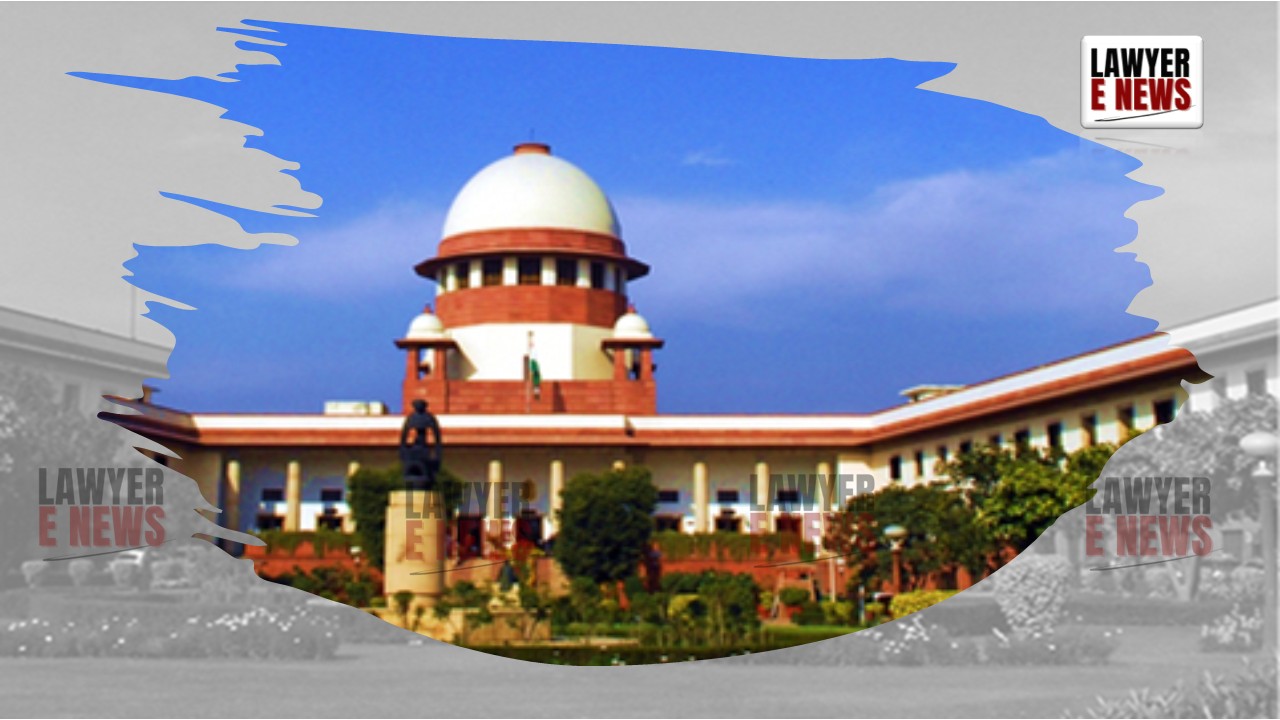-
by Admin
16 February 2026 1:47 PM



Freedom to Contract Must Be Respected—Judiciary Cannot Impose Financial Liabilities Beyond Agreement - Supreme Court of India, in a significant ruling on February 20, 2025, held that courts have no authority to unilaterally alter financial obligations in a contractual arrangement between private entities and the government. The judgment came in the case of Racing Promotions Private Limited v. Dr. Harish & Ors., where the Madras High Court had directed Racing Promotions Private Limited (RPPL) to reimburse Rs. 42 crores spent by the Tamil Nadu government and deposit Rs. 15 crores in advance for future events.
"Contractual obligations voluntarily undertaken cannot be judicially rewritten unless there is illegality, fraud, or arbitrariness," the Supreme Court declared, striking down the High Court’s financial directions as an unwarranted intrusion into private agreements. The Court also rejected the High Court’s directive that the Tamil Nadu government should itself organize future motorsport events instead of collaborating with private entities, calling it an unjustified interference in state policy and economic decision-making.
The case arose from a public-private partnership (PPP) between RPPL and the Sports Development Authority of Tamil Nadu (SDAT) to host Formula 4 racing events in Chennai. Under a Memorandum of Understanding (MoU) signed in August 2023, RPPL was responsible for Rs. 202 crores in investment, while SDAT committed Rs. 42 crores towards license fees, infrastructure, and other costs.
However, public interest litigations (PILs) were filed before the Madras High Court, raising concerns about public inconvenience, noise pollution, and the transparency of government expenditure. While the High Court did not prohibit the event, it imposed new financial conditions on RPPL, requiring them to reimburse government expenditure and make advance payments for future years.
Supreme Court: "Courts Cannot Impose Financial Liabilities Beyond the Contract"
The Supreme Court ruled that the Madras High Court’s directions were legally unsustainable because they interfered with the terms of a voluntarily signed MoU and imposed financial burdens beyond what the parties had agreed upon.
"Once parties have entered into a contract, neither the government nor the courts can unilaterally alter the financial commitments. Freedom to contract is fundamental to economic governance, and judicial intervention must be limited to ensuring fairness and legality," the Court held.
The judgment emphasized that RPPL was contractually obligated to invest Rs. 202 crores, while the government’s expenditure of Rs. 42 crores was expressly provided for in the MoU. By directing RPPL to reimburse the government and make advance payments for future events, the High Court had crossed the permissible limits of judicial review in commercial contracts.
Referring to previous Supreme Court precedents on judicial intervention in contractual matters, the bench observed, "The judiciary's role is to ensure procedural fairness, not to dictate new financial terms that were never agreed upon by the parties."
Judicial Review and Public-Private Partnerships: "Governments Have the Right to Engage Private Entities in Economic Development"
The Supreme Court underscored the importance of public-private partnerships (PPPs) in infrastructure and sports development, cautioning against judicial interference in policy decisions. The judgment noted that governments worldwide provide financial and logistical support to private sports events, recognizing their economic benefits.
“A government may choose to support private investments in sports, tourism, and infrastructure based on economic rationale. Courts must not derail such partnerships unless there is clear evidence of illegality or arbitrariness,” the Court stated.
The judgment also criticized the High Court’s direction that the Tamil Nadu government should independently conduct such events instead of collaborating with private entities. The Court called this an overreach into governance and policy-making.
“It is the prerogative of the government to decide whether to engage private players in economic activities. Courts should not interfere with such policy choices unless they violate constitutional or statutory provisions,” the ruling asserted.
The Court further explained that the rationale behind PPPs is to leverage private expertise and investment in sectors where the government may lack resources or technical know-how. Referring to global economic practices, the judgment remarked, “Public-private collaborations in infrastructure, sports, and urban development are widely accepted as effective governance models. Judicial interventions must not disrupt these mechanisms unless necessary.”
The Limits of PILs in Commercial Matters
The Supreme Court also cautioned against the misuse of PILs in commercial and contractual disputes, warning that excessive litigation could deter private investment in key sectors.
"While public interest litigation is an essential tool to address governance failures, it must not be used to rewrite business contracts or second-guess policy decisions," the Court observed.
Emphasizing that PILs should not become instruments of commercial interference, the Court declared, "Economic development requires stability in contracts. Unwarranted judicial interventions in business agreements will discourage investment and disrupt policy implementation."
Conclusion: "Contractual Stability is Essential for Economic Progress"
By striking down the financial conditions imposed by the Madras High Court, the Supreme Court has reaffirmed the sanctity of contracts and the limited scope of judicial review in commercial matters.
"Courts exist to enforce contracts, not to rewrite them. The financial commitments of the government and private entities must be determined by mutual agreement, not judicial fiat," the Court concluded.
With this ruling, the Supreme Court has sent a clear message that contractual autonomy and policy discretion must be respected, ensuring that India’s economic and infrastructure development remains guided by sound business principles rather than ad hoc judicial interventions.
Date of Decision: 20/02/2025
